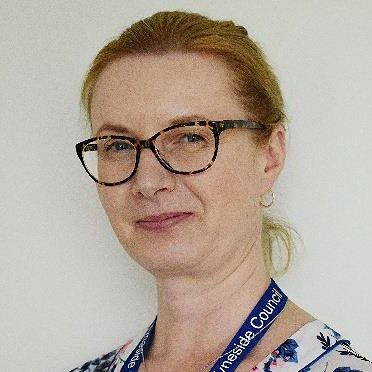Learning British Sign Language in schools
Learning sign language in schools offers many benefits encompassing communication, enhanced cognitive abilities, accessibility, empathy, inclusivity, and cultural identity.
British Sign Language (BSL) was recognised in law as a language of Great Britain in the BSL Act (2022), and the new GCSE will be key to helping inclusivity within education. National BSL Day is celebrated on April 28th each year.

Here are some key reasons why incorporating sign language into school curriculum is important:
Cognitive Development
Bilingual Benefits: Learning sign language as a second language offers cognitive benefits similar to learning any other second language, such as improved memory and multitasking skills.
Improved Communication Skills: Students who learn sign language often develop better non-verbal communication skills, such as interpreting body language and facial expressions, which are valuable in all forms of communication.
Inclusivity and Diversity
Social Inclusion and Peer Support: By using sign language, hearing students can bridge the communication gap, fostering inclusivity and reducing social isolation for deaf individuals and those with hearing impairments.
Empathy and Understanding: For hearing students, learning sign language can enhance empathy and understanding of the experiences of deaf people, promoting more supportive and inclusive social interactions.
Community belonging: The ability to communicate in multiple languages, including sign language, prepares students to interact with a diverse range of people. It fosters a sense of belonging and community among deaf individuals, providing a network of support and shared experiences.
Emergency Communication
In emergencies, sign language can be crucial for effective communication, ensuring that deaf individuals receive vital information promptly.
Technological Integration
Technology has expanded the ways sign language is used and accessed, from video relay services to sign language translation apps, enhancing communication opportunities.
Career Opportunities
Knowledge of sign language can open up career opportunities in fields such as education, healthcare, social work, and interpretation services.
The Importance of BSL for Children with English as an Additional Language (EAL) and those with SEND (Special Educational Needs and Disabilities)
Sign language plays a crucial role in supporting children with English as an Additional Language (EAL) and those with Special Educational Needs and Disabilities (SEND).
For children with EAL, sign language provides a visual aid to support understanding and learning new vocabulary.
For children with SEND, particularly those with speech or hearing impairments, it serves as an essential communication tool, promoting independence and confidence.
BSL can improve the learning experience for EAL and SEND students by enabling them to access information more easily, express themselves and converse with their friends and teachers effectively, and thus overcome language barriers.
BSL can serve as a universal visual language that supports understanding in multilingual classrooms, where all children can be engaged and included in lessons.

BSL Curriculum
The introduction of the new GCSE is in part thanks to Daniel Jillings, who has campaigned for the qualification since the age of 12. Daniel has also addressed more than 20 MPs in his first language, BSL.
The new GCSE qualification in BSL will be available to students in a small selection of schools and settings in England in September 2025. Good communication is essential both inside and outside the workplace and this new GCSE will give students a vital life skill valued by employers. Studying BSL is optional as it is not part of the National Curriculum.
BSL will be accessible for students who use it as their first language. Any student, of any age, can take the GCSE, either through their school or college, or entering as a private candidate.
The qualification is internationally recognised and accepted in school and college performance tables.
Overall, integrating sign language into the school curriculum enriches the educational experience for all students at their personal, academic, and professional levels. It is vital for achieving equality and promoting inclusivity.
Ready to find out more?
Read more about the new BSL GCSE
Local BSL courses
Skills North Tyneside - BSL for Adults
Skills North Tyneside Adult Learning courses will help our families build and improve their confidence to get the skills they need for everyday life and help their children as well.
British Sign Language Introduction
This course is for anyone who wishes to learn some basic techniques of British Sign Language.
British Sign Language Level 1
This course is for anyone who wishes to communicate with deaf people on a range of topics using simple, everyday language.
Please enquire on 0191 643 2288.
Upcoming North East RIG Events “Valuing the First Language for GCSE”
N A L D I C the national subject association for EAL
National Association for Language Development in the Curriculum
This event offers an excellent opportunity to examine how schools can support and encourage students with English as an additional language to take GCSEs in their first languages.
This is an excellent idea for newly arrived students, especially those, who have good literacy skills in their first language.
There are many benefits not just for the students taking GCSEs in their first language but also for the school’s wider community.
We encourage all EAL Coordinators or Leads, as well as Teachers of MFL to attend this important event on Wed 12th March 2025, 4pm at Langdale Centre, Wallsend.
Join Us
Follow this link North East RIG page to book your slot.
Please find attached the agenda for the North East RIG meeting, Valuing the First Language for GCSE. See more info here for signing up: https://naldic.org.uk/north-east-rig/
Article by
Zuzana Puente
English as an additional language Teaching Assistant
The Inclusive Learning and Achievement Service (ILAS)
zuzana.puente@northtyneside.gov.uk

